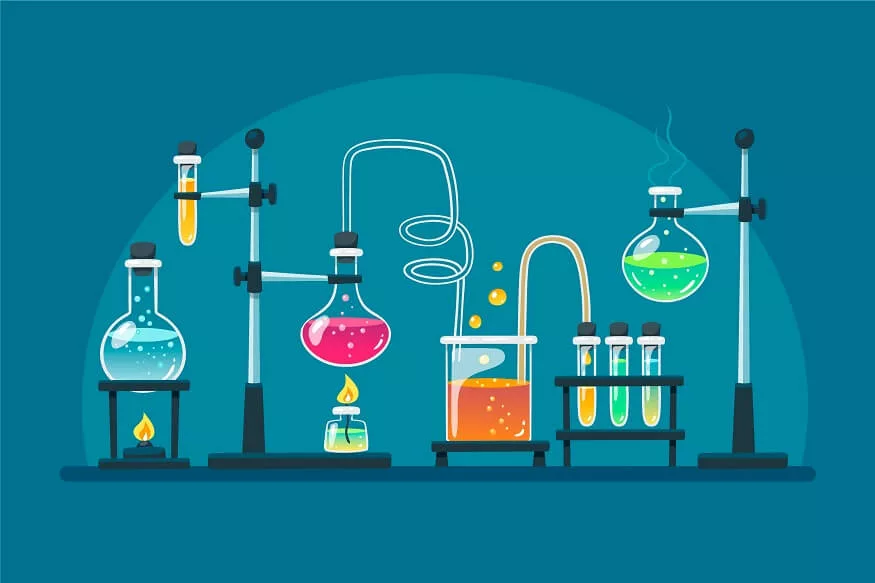Chemistry Definition
Chemistry is the branch of science that studies the composition, structure, properties, and changes in count numbers. It is an essential medical issue that studies the elements that make up the universe and the adjustments they undergo. Chemistry is important for information about the world around us, from the smallest debris together with atoms and molecules to the complex interactions of residing matter. In this blog, we are exploring the chemistry definition, the importance of chemistry, and chemistry in our daily lives.
Importance Of Chemistry
Let’s explore the importance of chemistry.
1. Foundation for Other Sciences:
Chemistry serves as a foundational technological know-how for different disciplines which includes physics, biology, geology, and environmental technological know-how. It affords important ideas and concepts that contribute to a comprehensive know-how of the natural international.
2. Innovation and Technology:
Chemistry is at the vanguard of innovation and era. From the improvement of the latest materials and pharmaceuticals to improvements in electronics and power garages, chemistry drives technological development that enhances our fineness of existence.
3. Medicine and Pharmaceuticals:
Understanding the chemical approaches within the human body is critical for scientific advancements. Chemistry plays a key role in drug development and personalised medicine, and they have a look at illnesses at the molecular degree.
4. Agriculture and Food Production:
Chemistry is essential to agriculture, from the development of fertilisers to the research of soil composition. Food manufacturing and safety additionally depend on chemical concepts.
5. Environmental Sustainability:
The key importance of Chemistry contributes to environmental sustainability with the aid of analysing and mitigating pollution, growing cleaner electricity sources, and promoting eco-friendly practices. Green chemistry, for example, specialises in minimising the environmental impact of chemical approaches.
6. Energy Production and Storage:
Advancements in electricity manufacturing and storage, which include the improvement of batteries and renewable strength technologies, are rooted in chemical concepts. Chemistry plays a critical position in locating sustainable solutions to international electricity-demanding situations.
7. Materials Science:
Chemistry is relevant to substance technology, exploring the residences and packages of diverse materials. This discipline contributes to the development of new substances with particular homes, influencing industries like aerospace, creation, and electronics.
8. Biotechnology:
Biotechnology relies on the principles of chemistry to manipulate and engineer biological systems. From genetic engineering to the production of biofuels, chemistry is essential for advancements in this rapidly evolving field.
9. Understanding Nature:
Chemistry allows us to understand the composition of the Earth, its surroundings, and the universe. Analysing celestial bodies, reading the Earth’s geology, and investigating the atmospheres of planets all involve chemical principles.
10. Consumer Products:
Chemistry is behind the development of countless consumer products, from cleaning agents and cosmetics to pharmaceuticals and electronics. Quality control, formulation, and product innovation rely on a deep understanding of chemical processes.
Also Read: 15 Famous Indian Scientists and Their Inventions
Why You Should Study Chemistry:
1. Problem Solving:
Chemistry hones problem-solving skills. Analysing experimental data, understanding chemical equations, and predicting outcomes of reactions develop critical thinking and analytical reasoning, skills applicable in various life situations.
2. Career Opportunities:
A background in chemistry opens doors to diverse career paths. Opportunities exist in research, academia, industry, healthcare, environmental science, and more. Whether working in a laboratory or contributing to policy decisions, a chemistry education is versatile.
3. Global Challenges:
Many global challenges, such as climate change, pollution, and energy crises, require solutions rooted in chemistry. Studying chemistry equips individuals to contribute to addressing these pressing issues.
4. Intellectual Stimulation:
Chemistry provides intellectual stimulation through exploring the intricacies of matter and its transformations. The pursuit of knowledge in chemistry satisfies curiosity and fosters a lifelong love for learning.
5. Innovation and Creativity:
Chemistry fosters innovation and creativity. Whether designing new materials, developing sustainable technologies, or discovering novel compounds, the field encourages individuals to think creatively and push the boundaries of what is possible.
6. Contribution to Society:
A background in chemistry allows individuals to make meaningful contributions to society. From improving healthcare to developing sustainable practices, chemists play a crucial role in enhancing the well-being of individuals and the planet.
7. Interdisciplinary Connections:
Chemistry is inherently interdisciplinary, connecting with biology, physics, engineering, and environmental science. Studying chemistry provides a holistic perspective, allowing individuals to appreciate the interconnectedness of scientific disciplines.
8. Scientific Literacy:
In an era dominated by scientific advancements, understanding chemistry is essential for scientific literacy. It enables individuals to critically evaluate information, make informed decisions, and actively participate in societal discussions on scientific topics.
Also Read: STEM activities for kindergarten: How do you introduce STEMS lessons
Importance Of Chemistry In Our Daily Life
Let’s explore the importance of chemistry in our daily life. Here is how we apply the chemistry definition in our everyday activities.
1. Cooking and Food Chemistry:
Understanding the chemical reactions that occur during cooking enhances culinary skills. From Maillard browning in searing meat to the fermentation of dough, chemistry plays a role in creating diverse flavours and textures in food.
2. Household Products:
Cleaning merchandise, detergents, and personal care gadgets depend on chemical formulations. Surfactants, emulsifiers, and pH-balancing agents are examples of chemical compounds used to optimise the effectiveness of these merchandise.
3. Medicine and Healthcare:
Pharmaceuticals, vaccines, and medical treatments are the result of widespread chemical studies. Chemistry contributes to drug discovery, components, and knowledge of the biochemical techniques in the human frame.
4. Environmental Impact:
Environmental chemistry assesses the impact of human activities on ecosystems. Monitoring air and water quality, studying pollution sources, and developing strategies for waste management all involve chemical principles.
5. Plastics and Polymers:
The production and recycling of plastics involve chemical processes. Understanding polymerisation reactions contributes to the development of sustainable materials and the reduction of environmental impact.
6. Personal Care Products:
Cosmetics, skincare products, and toiletries are formulated with the usage of chemistry. Ingredients which include antioxidants and preservatives are carefully selected to decorate the performance and safety of those products.
7. Fertilisers:
Chemistry plays a role in developing fertilisers that enhance crop growth. Understanding soil composition, nutrient uptake, and plant metabolism is essential for optimising agricultural practices.
8. Textiles and Clothing:
Dyeing, fabric treatment, and material durability involve chemical processes. Advances in textile chemistry contribute to the development of functional and sustainable clothing materials.
9. Water Treatment:
Chemistry is essential in water treatment processes. From disinfection using chlorine to the removal of contaminants through coagulation and filtration, chemical principles ensure access to clean and safe drinking water.
Also Read: Know the Benefits of Taking Science in Class 11
Importance of Organic Chemistry:
Here are the crucial points to understand the importance of organic chemistry.
- Medicine and Pharmaceuticals: Before delving into organic chemistry, we should remember the chemistry definition. Organic chemistry is vital in drug discovery and pharmaceutical development, shaping the field of medicine.
- Materials Science: It contributes to the design of new materials with specific properties, impacting industries such as plastics, textiles, and electronics.
- Environmental Chemistry: Understanding organic reactions aids in addressing environmental challenges, including pollution and waste management.
- Biotechnology: Organic chemistry is integral to biotechnological advancements, enabling genetic engineering, enzyme synthesis, and the production of biofuels.
- Agrochemicals and Agriculture: The development of pesticides and fertilizers relies on organic chemistry principles, optimising crop yield and quality.
- Flavour and Fragrance Industry: Organic compounds are crucial for creating flavours in food and fragrances in perfumes, enhancing sensory experiences.
Also Read: Science Stream Career Options after 10th & List of Courses after 12th
At EuroSchool, we understand that Chemistry is an important technology that is present in every aspect of our lives. It provides insight into the composition of the count, material connections, and the strategies that shape our environment. Chemistry not only provides an understanding of the natural world, but it also provides people with skills that can be useful in a variety of careers and contribute to personal and social success.










